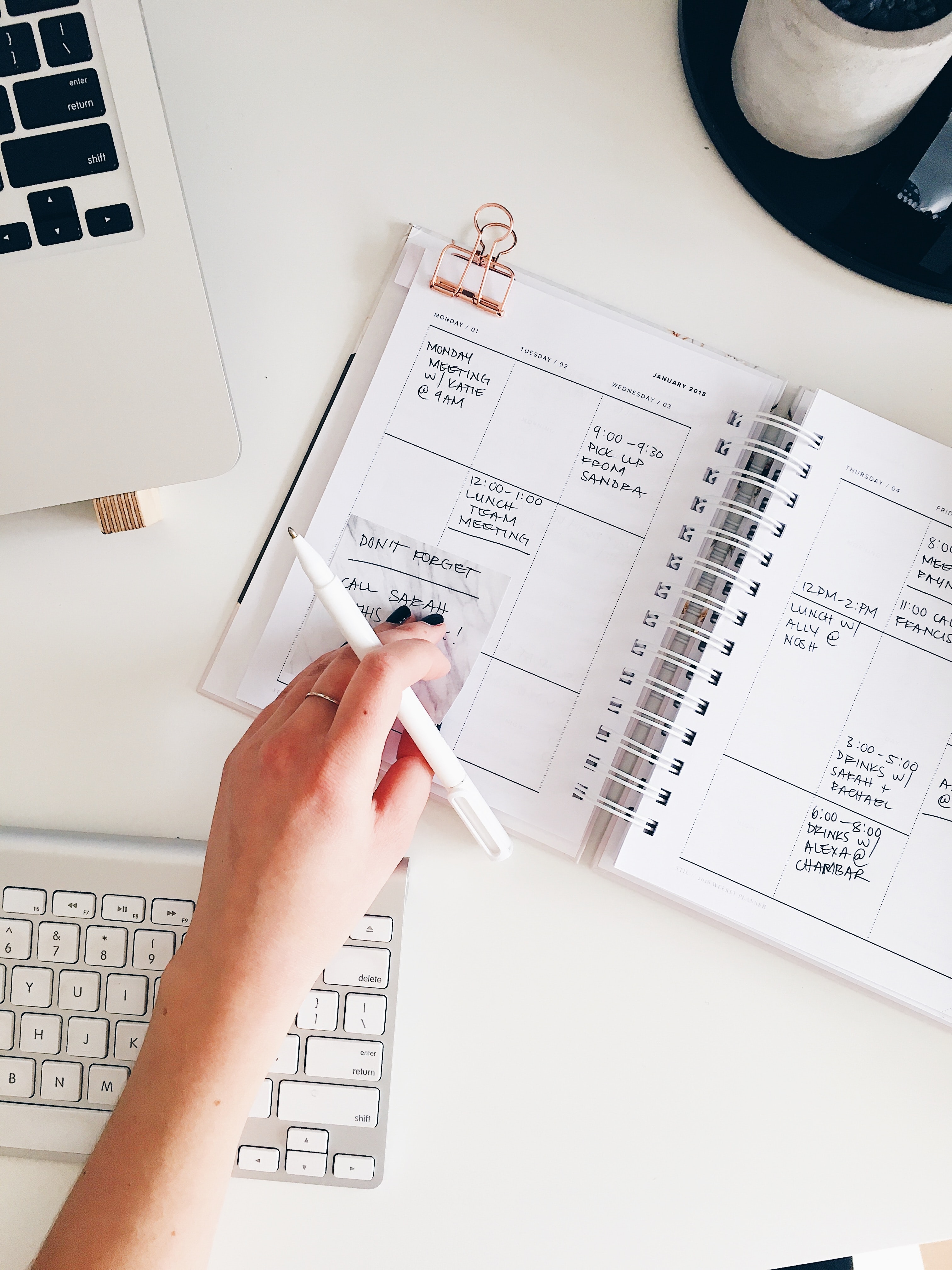(Episode 1: Will & Going to for the future. Part 1)
(Photo by STIL )
“I hate grammar!”
Ok, but you don’t have to! Don’t you want to talk in English without confusing your listener? Don’t you want to understand what you hear perfectly?
Come listen to this first episode with me, and I will show you how to use “will” and “be going to” and talk about the future better without getting bored with grammar exercises. To be honest, I hate them, too!
In this episode, we are going to take the first step by asking ourselves “Why is my future certain?”. I mean, I know the future is technically not certain, but let’s talk about philosophy and quantum mechanics another time!
We are going to look at examples, answer questions, and most importantly, find out how to practice this with only one or two minutes a day! So, come with me! It won’t even take 10 minutes!
Episode transcript
Ok, … It’s Ok… Take a deep breath, relax those shoulders. This will be easy, I promise.
Hello everyone. This is Parya, an English teacher talking to you from Tokyo, and you are listening to English Airs, a podcast that will give you effortless accuracy in English. Let’s jump right in, and leave the extra information for later. So, in the first two episodes, I thought I would help you fix one of the most common problems once and for all:
“Should I use will, or going to?”
Can you think of your week and tell me one thing that you are going to do and one thing that you will do? Was it easy to choose? If not, this episode is for you!
“Will” and “Going to” are both certain things, aren’t they? And they both happen in the future, don’t they? Well, yes, and yes. But the real question is “Why they are certain.” First, let’s take a look at our schedule. What have you decided to do this week? What have you decided to do today? In my case, I am going to have lunch with a couple of friends on Friday! We are going to meet in front of a Greek restaurant at noon! We decided all this yesterday. And today, I am going to do some Japanese reading practice. Did you notice what form I was using? Was it “will”, or “going to”? If you are still not sure, listen carefully to the questions I am going to ask you; the clue is there! Are you going to buy something today? Have you decided what you are going to eat for dinner? Are you going to start exercising on Monday? Are you going to become a movie star? Think about your plans, and it would be great if you could answer me out loud. If not, just make the full sentence in your head. So, think. I will wait. Before we move on to the next part, good luck with your plans!
Now, I want everyone who is listening to think about their age: how old are you? If you can, answer me out loud. Now think about next year: How old will you be next year? (Again, an out-loud full sentence will be best) Well, tell me: have you decided to turn one year older?! Of course not! You might like your birthday, but it would be great if you could have birthdays without getting old, right? So, It wasn’t a decision, was it? It is just a future fact: it is something that will be true in the future, in this case, because it’s a fixed, regular event. And by the way, happy birthday! So, can you tell me which form to use if you think something will be true in the future? I’m sure you can!
Look at your schedule again. What regular events are there? Do you take lessons regularly? Who will you see in your lesson this week? Who will you see at work or school? Do you go to the gym regularly? Yes? Wow, good for you! Which day will you be at the gym? If this weekend is a typical one and you don’t have any special plans, where will you be? Think of a few things and tell me. I am listening. Well done! See, you can do it!
Now let’s go back to our question: “why is your future certain?” Is it a fact because it happens regularly? Then it will happen. Or have you made a decision about it in the past? Then you are going to do it. The answer to this question will tell you which to use, and that is a fact! 🙂
So now we know the difference. It’s time to practice it. Now don’t panic! I am not going to give you homework! There are ways to practice a language that take almost none of your time, and I am going to share them with you. For this one, set a reminder on your phone with these questions:
“Who will I see today?”
“How old will my friend be next year?” )Try to choose a different friend every time you answer this question.)
“What am I going to do tomorrow?”
Set it for a time when you know you will have one or two minutes to think and answer. One or two minutes are enough. Really! As always, an out-loud answer is better. Here is an example ” I’ll see Alex at work tomorrow. I am going to give him his birthday present.” Set the reminder to repeat every day, until next week when we talk more about this.
If you visit my website English Airs, you can find the transcript of this episode, plus a photo of Iron Man that will help you remember all this better. In addition, you will see a cute dog deciding to eat healthy! Take a look! I’ve put the link to the post in the show notes. Also, if you follow my Instagram page, you will receive similar questions frequently. Answering them will be a great regular practice. To make the most of this episode, listen to it a few times until next week. If you can give new answers to the questions each time, it will be fantastic. Think of how much real English speaking you can do! Well, that was part one of “will” vs “going to”. It would be great if you can leave a comment and/or ask questions. You can do that on my website, English Airs, or wherever you get your podcasts. I will be happy to answer questions, and if it’s a big one, you can look forward to another whole new episode about it! Oh, and by the way, it would be really nice of you if you could introduce this podcast to your friends! I wish to help as many people as I can, with your help.
Parya out!
Iron Man and a puppy to the rescue!


If you have any questions, leave a comment under this post, or ask me.




